Approved by the Ministry of Health for circulation, two made-in-Vietnam coronavirus (SARS-CoV-2) test kits were put into production, in order to help Vietnam proactively prevent and control the Covid-19 epidemic as well as to support countries where the epidemic has spread.
The two test kits to detect Sars-CoV-2, Real-time RT-PCR and RT-PCR, developed by the Military Medical Research Institute of Military Medical Academy and Viet A Technologies Joint Stock Company, were provided to 40 hospitals and infectious disease control centers in Vietnam. Additionally, over 10 countries, including Cambodia, Nigeria, Poland, Australia, Germany, Finland, Ukraine, Italy, Turkey and Ireland, have placed orders for the test kits.
The manufacturer has sent its first shipment of 50 kits to the Ukraine and a further 100 sets to Finland for importers to register circulation before officially importing them. Hanoi’s authorities have ordered 4,000 sets for their own use and to present to hospitals in Italy, which is one of Europe’s biggest hotspot for COVID-19.
It took the Military Medical Research Institute 2 months to complete research for the two coronavirus test-kits, which deliver results in 2 hours, excluding the time to process and split samples. The real-time RT-PCR and RT-PCR have high accuracy and sensitivity similar to those produced by the US Centers for Disease Control and Prevention (CDC) and the World Health Organization (WHO).

Senior lieutenant-colonel Ho Anh Son said: "The kits are the work of soldiers on the anti-epidemic front lines.
We have not stopped researching and improving." Photo: Cong Dat
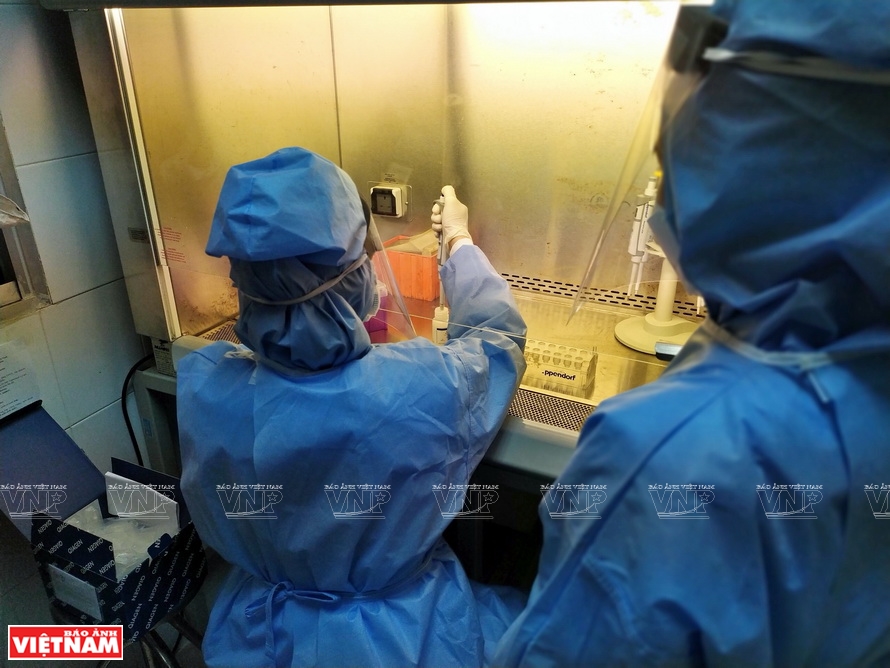
Officials from the Military Medical Research Institute are splitting patient samples. Photo: Files
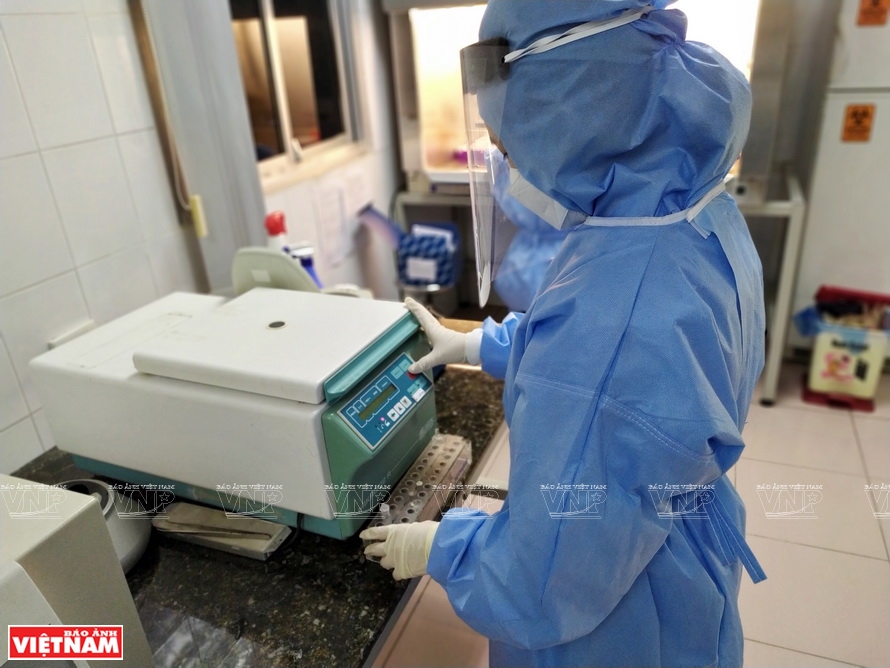
After going through the microbiological process, patient samples will be run on the machine to get results. Photo: Files
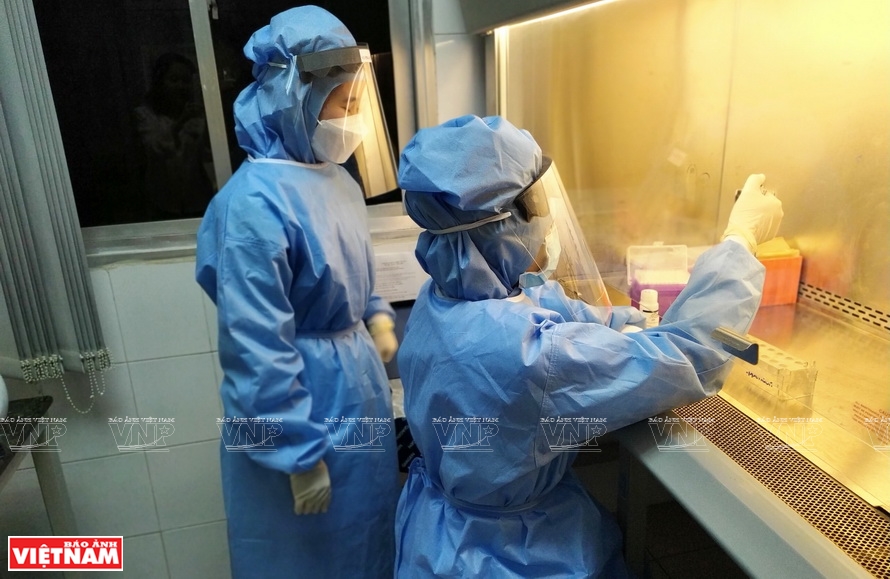
Splitting suspected corona virus patient samples. Photo: File
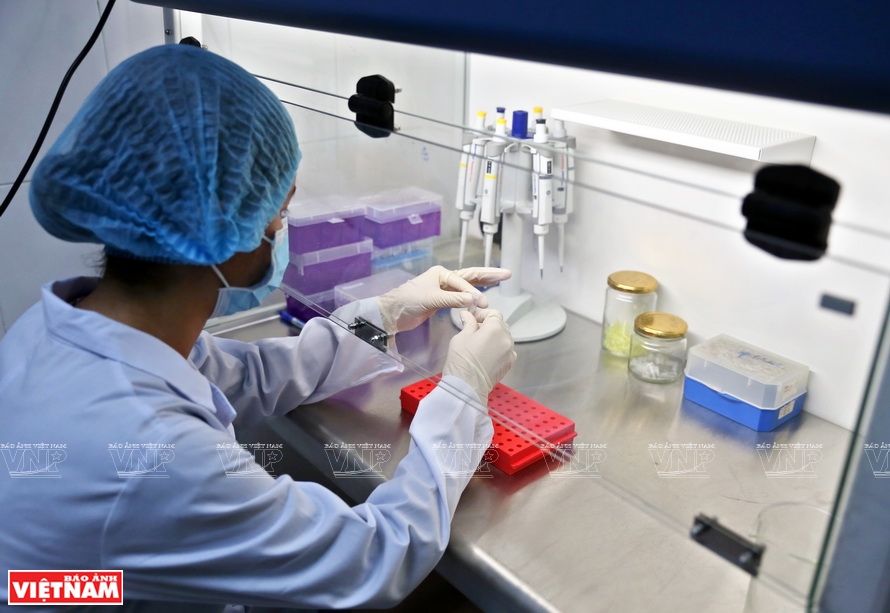
The procedure of splitting patient samples. Photo: Cong Dat
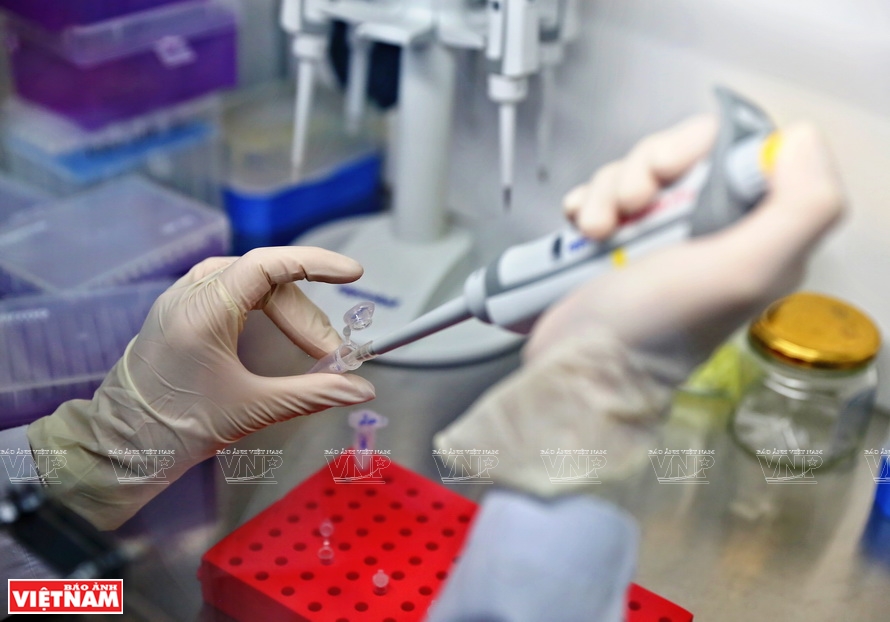
The procedure of applying suspected patient RNA samples. Photo: Cong Dat
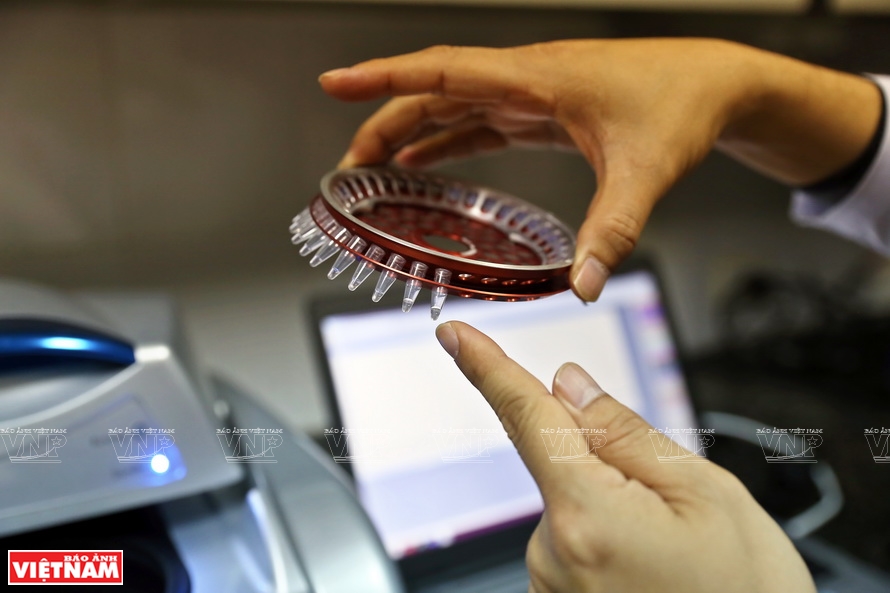
Reactors have been sampled and prepared to be put into Real-time RT-PCR for testing. Photo: Cong Dat
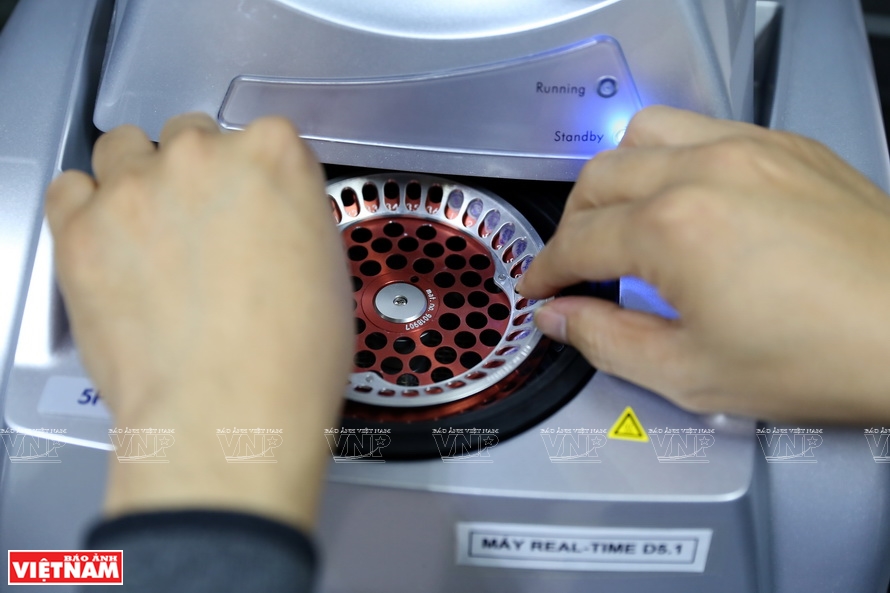
Inserting a real-time RT-PCR reaction into the device to run the coronavirus detection test. Photo: Cong Dat
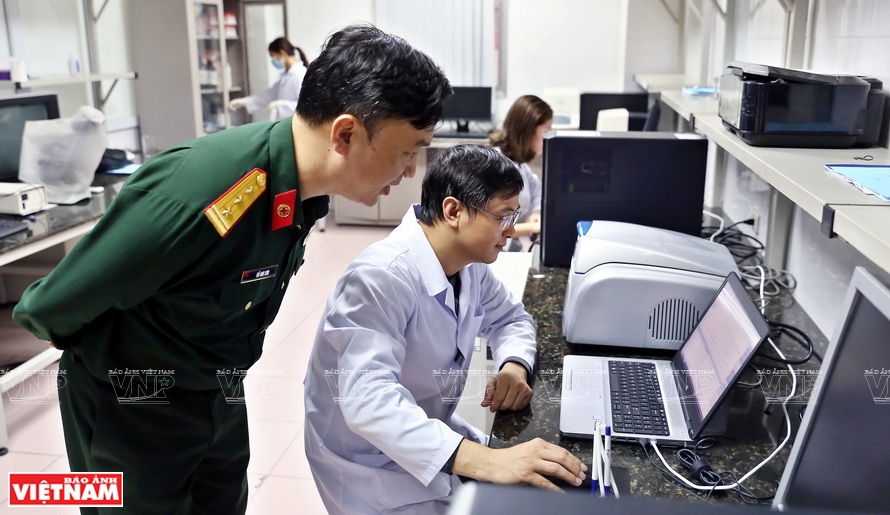
Senior Lieutenant-colonel Ho Anh Son and Dr. Hoang Xuan Su view the positive respiratory tract sample results. Photo: Cong Dat
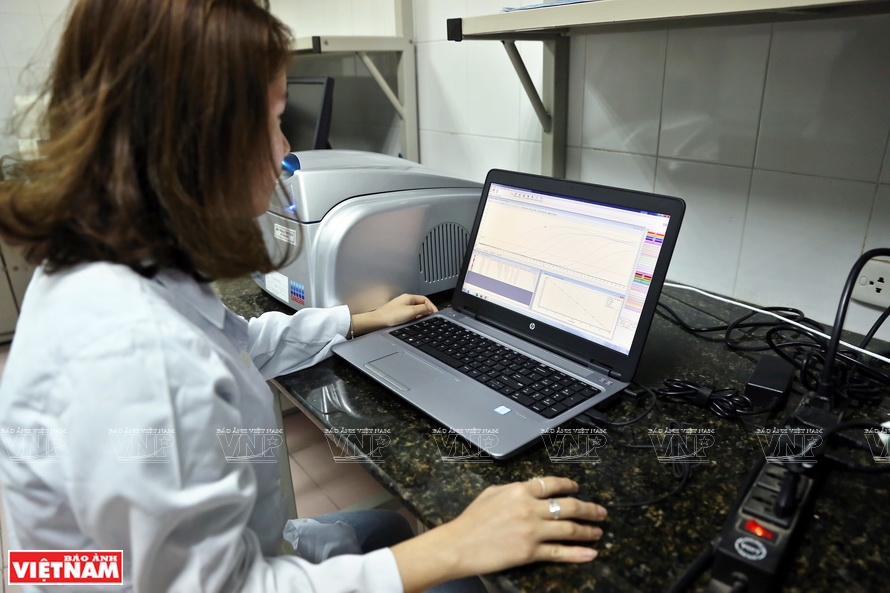
The red line on the device reaching a high level indicates the patient is infected with the coronavirus. Photo: Cong Dat
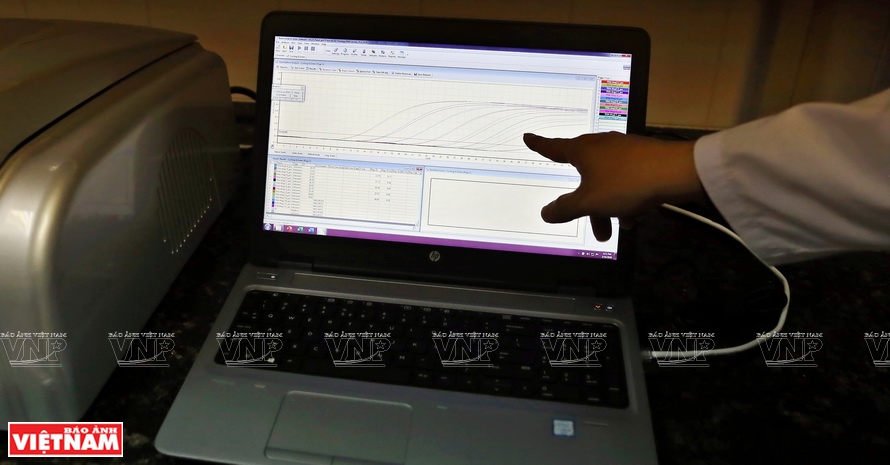
Evaluation results of a real-time RT-PCR kit detects the coronavirus. Photo: Cong Dat
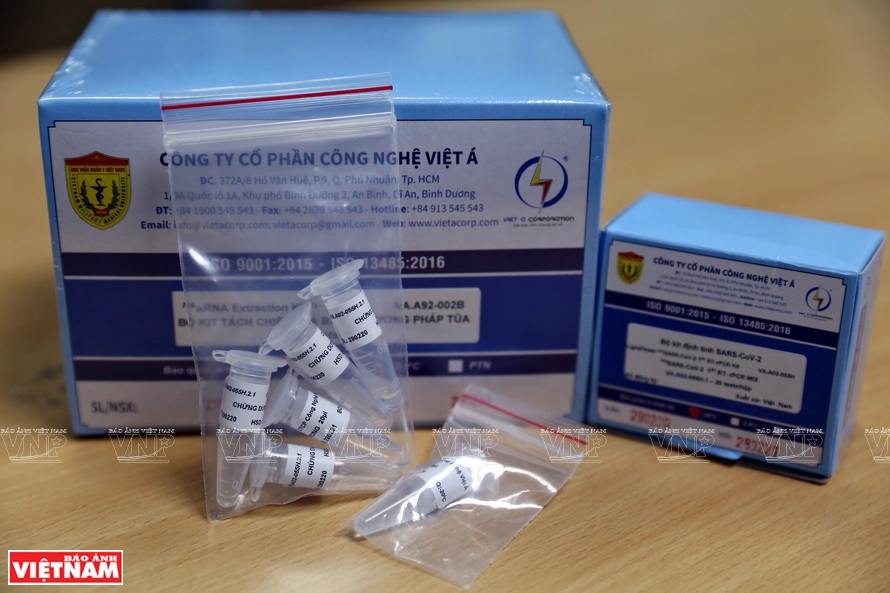
Two kinds of real-time RT-PCR testing kits manufactured by Viet A Technologies Joint Stock Company were authorized by the Ministry of Health. Photo: Cong Dat
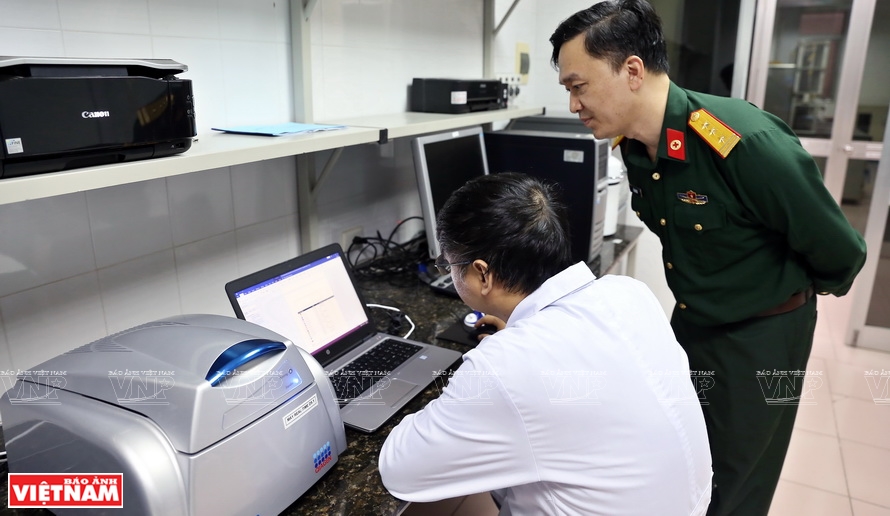
Staffs of the Military Medical Research Institute read the test results
at all times and daily report the research progress of SARS-CoV-2 to superiors. Photo: Cong Dat |
To earn this achievement, Senior lieutenant-colonel Ho Anh Son, deputy director of the Military Medical Research Institute, and Dr. Hoang Xuan Su, in charge of implementing the project strategy, worked day and night with other colleagues.
Although the made-in-Vietnam novel coronavirus test-kits are already used domestically as well as internationally this week, the task for the "virus-catching" soldiers has not ended yet. The Military Medical Research Institute continues to do research and make improvements for more optimal products.
Story: Bich Van – Photos: Cong Dat & Files